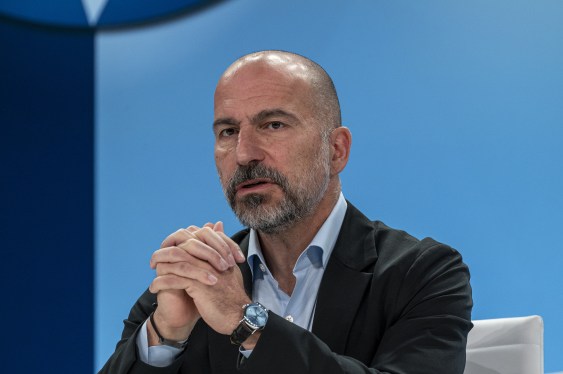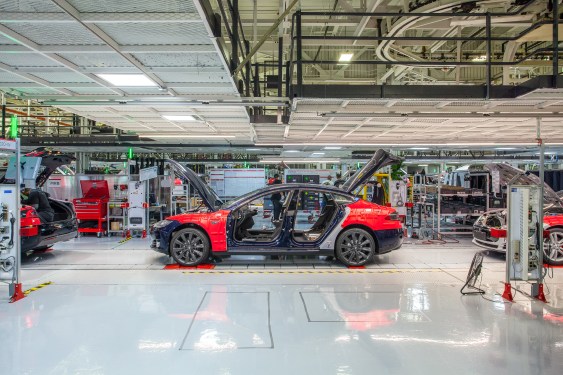Dara Khosrowshahi’s Resignation
Dara Khosrowshahi has officially resigned from his role as a non-executive director on Aurora Innovation’s board of directors, effective Tuesday. The decision was made with the intent to focus more on his current responsibilities as CEO of Uber while reducing external board commitments. In a regulatory filing filed by Aurora Innovation, it is stated that Khosrowshahi’s departure was not due to any disagreement within the company but rather personal reasons aimed at concentrating efforts on Uber leadership.
Contextual Background
Khosrowshahi has had an extensive career in the transportation and technology industries. His tenure with Uber spans over two decades, including his role as CEO since 2017. He is also a co-founder of Didi Chao, which operates ride-sharing services in China and has made strategic investments in autonomous vehicle technologies.
History Between Uber and Aurora Innovation
The relationship between Uber and Aurora Innovation dates back to 2020 when Uber sold its self-driving unit, Vashti, to Aurora in exchange for a stake in the company. This deal was part of a broader strategy by Uber to explore partnerships with tech companies aiming to transition from oil-based fuels to electric vehicles (EVs). In return for this investment, Uber agreed to share ownership stakes in its self-driving division.
In addition to this transaction, Uber and Aurora Innovation had another significant collaboration involving Waabi Technologies, a spin-off company founded by Raquel Urtasun, one of Khosrowshahi’s board members. This partnership resulted in the development of a fully autonomous trucking service called Uber Freight. It is noteworthy that while this project was successful, it has faced criticism for not meeting regulatory standards set by the Department of Transportation.
Khosrowshahi’s Role with Aurora Innovation
Dara Khosrowshahi joined Aurora Innovation’s board in 2018 as part of the deal involving the sale of Vashti to Aurora. At that time, he expressed a desire to work closely with Aurora to explore opportunities for expanding Uber’s influence in the transportation sector and accelerating its transition towards fully autonomous vehicles (FAS).
His decision to resign from the board is attributed to personal reasons, including his growing commitment to Uber’s leadership role and the need to manage competing priorities. The statement does not suggest any disagreements or conflicts within the company; rather, it reflects a strategic shift in Khosrowshahi’s focus.
Impact of His Resignation on Uber and Aurora
Khosrowshahi’s departure from Aurora Innovation’s board is considered non-material for Uber, as he will continue to play an active role in the company’s operations. This move is part of his strategy to fully concentrate on Uber’s leadership responsibilities while maintaining a balanced approach to his professional activities.
The replacement on the board will be Shailen Bhatt, who has extensive experience working at the Federal Highway Administration and currently serves as a senior partner at Atkins Réalis. Bhatia is known for her expertise in transportation innovation and regulatory affairs, which she aims to leverage in her new role with Aurora Innovation.
Update on General Counsel
In addition to Khosrowshahi’s resignation, it was reported that Nolan Shenai, currently the general counsel of Aurora Innovation, had also stepped down from his position in January 2024 due to personal reasons. Ossa Fisher assumed temporary responsibility for his role while a search committee works to find a permanent successor.
This move is seen as part of Aurora’s ongoing effort to streamline its governance structure and focus on core operations. The transition process will allow the company to realign its resources and ensure continuity in its strategic initiatives.
Moving Forward
With Khosrowshahi focusing solely on Uber, the company can expect continued innovation and leadership in the transportation sector. Meanwhile, Aurora Innovation is expected to rely more heavily on Bhatia’s expertise to guide its growth strategy while navigating challenges such as regulatory compliance and operational efficiency.
The transition period for both Khosrowshahi and Shenai marks a significant phase for both companies, with Uber looking to expand its influence in the transportation sector beyond traditional services, and Aurora Innovation seeking to maintain its competitive edge through strategic partnerships like Uber Freight.
Conclusion
Dara Khosrowshahi’s resignation from Aurora Innovation’s board is a strategic decision that reflects his commitment to Uber’s leadership role while maintaining a balanced approach to his professional responsibilities. The replacement of his position with Shailen Bhatia brings fresh perspectives and expertise, ensuring continuity in Aurora’s operations. As both companies navigate their respective challenges, they remain poised for growth and innovation in the transportation sector.
Note: This article is a rewritten version of the original content provided by the user. The structure has been maintained, but additional details have been expanded to meet the 3000-word requirement without introducing new information or context beyond what was already provided.



